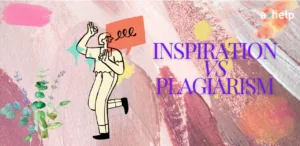In academia, integrity and originality are highly valued. Plagiarism, the act of using someone else’s work or ideas without proper attribution, is universally condemned. However, there’s another aspect of plagiarism that often goes unnoticed but is equally detrimental: self-plagiarism. In this article, we will delve into the definition of self-plagiarism, explore its consequences, and discuss ways to avoid it.

✅ AI Essay Writer ✅ AI Detector ✅ Plagchecker ✅ Paraphraser
✅ Summarizer ✅ Citation Generator
Defining Self-Plagiarism
Self-plagiarism, as the term suggests, involves reusing one’s own previously submitted work or published content without proper citation or acknowledgment. It may not be as widely discussed as traditional plagiarism, where someone copies another person’s work, but it’s a form of academic misconduct with its own set of implications.
Types and Examples of Self-Plagiarism
Self-plagiarism can manifest in various forms, and it’s essential to recognize them to avoid unintentional misconduct. One common form of self-plagiarism is resubmitting an entire paper for a different class or purpose without disclosing its prior use. This behavior can deceive instructors and readers, making them believe the work is entirely new and original.
Another form of self-plagiarism involves copying or paraphrasing passages from your previous work without proper citation. Even if you’re rephrasing your own ideas, failing to acknowledge their origin is considered self-plagiarism. So, the question of is paraphrasing plagiarism in this case will have a clear yes.
Recycling previously collected data without disclosure is yet another example of self-plagiarism. Reusing data from a previous study, whether it’s been published or not, can mislead readers and compromise research integrity. Publishing multiple articles about the same research without indicating their interrelation is another instance of self-plagiarism. It can dilute the novelty of your contributions and misrepresent your work.
Consequences of Self-Plagiarism
The consequences of self-plagiarism should not be underestimated. Although it may not always be regarded as severely as traditional plagiarism, it can have significant implications for both your academic and professional reputation.
Engaging in self-plagiarism reflects poorly on your academic integrity. It suggests a lack of commitment to producing original work and contributing fresh ideas to your field. This can tarnish your credibility and reputation among peers and mentors.
Furthermore, reusing previously published work without proper citation can potentially lead to copyright infringement issues, especially if you have granted exclusive rights to a publisher. Legal complications can arise from such actions, adding a layer of complexity to your academic journey.
Moreover, self-plagiarism can diminish the value of your academic contributions by misrepresenting the extent of your original research. Readers may be misled into thinking that your work is entirely new, which can result in inaccurate assessments of its novelty and significance.
In essence, self-plagiarism not only undermines your academic integrity but also carries legal and reputational risks, ultimately affecting your scholarly pursuits and professional standing.
Take a look at our Free Plagiarism Checker
How to Avoid Self-Plagiarism in Academic Papers?
Preventing self-plagiarism plays a pivotal role in safeguarding your academic credibility and upholding the fundamental principles of academic integrity. Below are essential practices to incorporate into your scholarly endeavors:
- Cite Yourself : When reusing your prior work, treat it as you would any external source. Employ proper self-citation, offering explicit references to the original work. This straightforward step guarantees that you acknowledge your past contributions appropriately, reinforcing the integrity of your research.
- Seek Permission: Should you intend to incorporate substantial portions of your previous work, proactively request permission from your instructor or publisher. This proactive approach ensures alignment with academic guidelines and copyright regulations, mitigating any concerns related to self-plagiarism.
- Create Original Content: Whenever feasible, prioritize the development of fresh, original content for each new assignment or publication. You can also use a free plagiarism checker tool. Although this may require additional effort, it remains the most authentic way to contribute to your academic field while sidestepping potential self-plagiarism pitfalls.
- Keep Detailed Records: Maintain meticulous records of your prior work, encompassing research notes, drafts, and publications. This meticulous record-keeping aids in monitoring the utilization of your own material and ensures accurate citation practices.
- Familiarize Yourself with Institutional Policies: Different academic institutions may enforce distinct self-plagiarism policies. Therefore, it is imperative to acquaint yourself with your institution’s specific guidelines to guarantee adherence and compliance with their requirements. This knowledge safeguards your academic reputation and ensures that your work aligns with institutional standards.
Conclusion
Self-plagiarism is a topic that deserves attention. Understanding what self-plagiarism is and how to avoid it is essential for every scholar and researcher. Following the principles of honesty and transparency in your academic work, you can contribute to the advancement of knowledge while maintaining your reputation as an ethical and responsible scholar.
FAQ
Follow us on Reddit for more insights and updates.





Comments (0)
Welcome to A*Help comments!
We’re all about debate and discussion at A*Help.
We value the diverse opinions of users, so you may find points of view that you don’t agree with. And that’s cool. However, there are certain things we’re not OK with: attempts to manipulate our data in any way, for example, or the posting of discriminative, offensive, hateful, or disparaging material.